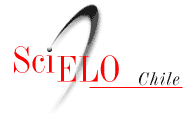Carification methods in seeds of Guaiacum coulteri an endangered species that inhabits the tropical deciduous forest of northern Sinaloa, Mexico
Keywords:
conservation, guayacán, physical dormancy, pregerminative treatments, seedAbstract
This investigation documented the effect of methods of physical and chemical scarification in seeds of Guaiacum coulteri, a species of tropical deciduous forest from Sinaloa protected by national and international laws, in order to contribute to the germinative knowledge of the species. For this, six pregerminative treatments were evaluated on the initial germination time (IGT), initial germination percentage (IGP), mean germination time (t50) and final germination percentage (FGP) with a randomized completely design under laboratory conditions. Scarification methods influenced significantly (p<0.05) in the four variables. The seeds subjected to the treatments H2SO4 for 5 and 10 min started to germinate one day after sowing, whereas in the control occurred until the third day. The initial germination percentage increased to 73.3% with the treatment of sandpaper against the control that was just 10%. The scarification with H2 SO4 for 5 and 10 min advanced the mean germination time to 1.8 d, in relation with the control that was 5.2 d. The higher final germination percentage was obtained with the sanding of the seeds (86.7%), unlike 51.1% achieved in hot water (60 °C) for 10 min. The knowledge derived from this essay demonstrated that the methods of scarification with sandpaper and sulfuric acid were the best pregerminative treatments, due to they fragmented or weakened the seed coat and allowed obtaining high germination rates, what will have relevance for the production of seedlings.
Downloads
Downloads
Published
How to Cite
Issue
Section
License
Authors who publish with this journal agree to the following terms:
- Authors retain copyright and grant the journal right of first publication.
- The articles in this journal are published under Creative Commons Attribution-NonCommercial 4.0 International License that allows others to share the work with an acknowledgement of the work's authorship and initial publication in this journal.
- Authors are permitted and encouraged to post their work online (e.g., in institutional repositories, on their website or ResearchGate) prior to and during the submission process, as it can lead to productive exchanges, as well as earlier and greater citation of published work (SeeThe Effect of Open Access).













